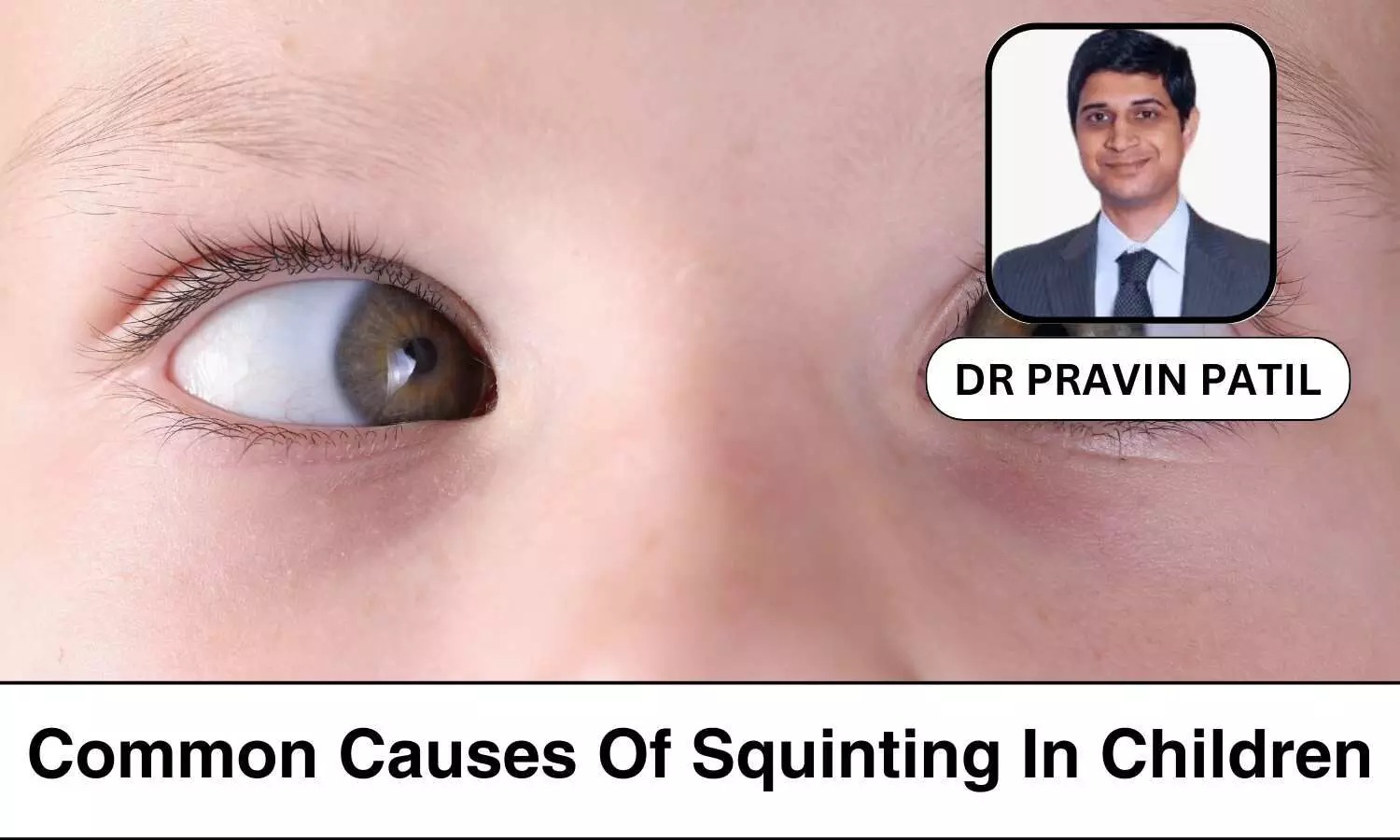Why Is My Child Squinting? Understand The Common Causes - Dr Pravin Patil

As a parent, noticing your child squinting can be concerning. Squinting is a sign that your child might be struggling to see clearly. Understanding the underlying reasons can help in addressing the issue effectively. Here are some common causes of squinting in children:
1. Refractive Errors
One of the most common reasons for squinting is a refractive error, which affects how light is focused on the retina. Types of refractive errors include:
● Myopia (Near-sightedness): Children with myopia have difficulty seeing distant objects clearly. To bring them into focus, they might squint to reduce the blur.
● Hyperopia (Far-sightedness): Hyperopia occurs when the eye focuses images behind the retina, leading to difficulty focusing on nearby objects. Squinting helps improve clarity by altering the eye's focus.
● Astigmatism: This condition is caused by an irregularly shaped cornea or lens, leading to distorted or blurred vision at all distances. Squinting can temporarily correct this by slightly altering the light entering the eye.
2. Eye Muscle Imbalance (Strabismus)
Strabismus, commonly known as "crossed eyes," occurs when the eyes do not align properly. This misalignment can cause double vision, and a child might squint in an attempt to correct or compensate for the imbalance. Early diagnosis and treatment are crucial to prevent long-term vision problems.
3. Eye Fatigue
With the rise in screen time, children are spending more hours in front of digital devices. Prolonged exposure to screens without breaks can strain the eyes, leading to fatigue. Squinting may be a way for your child to refocus and relieve some of this eye strain.
4. Uncorrected Vision Issues
If a child has an uncorrected vision problem, squinting might be an attempt to see more clearly. Regular eye check-ups are essential to detect and correct these issues early.
5. Drooping Eyelids (Ptosis)
Ptosis is a condition where the upper eyelid droops over the eye, potentially blocking vision. Children with ptosis may squint to see better, especially if the drooping eyelid covers part of their field of vision.
6. Habitual Behaviour
In some cases, squinting can become a habit, even after the underlying issue has been resolved. If a child has been squinting for an extended period, they may continue to do so out of habit.
If your child is frequently squinting, it’s essential to consult with an eye care professional. Early intervention can help address the root cause and ensure your child's vision develops properly. Regular eye exams are key to maintaining good eye health and preventing long-term problems.


